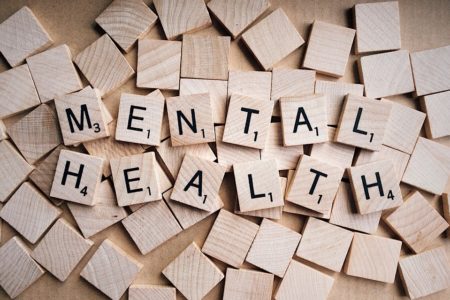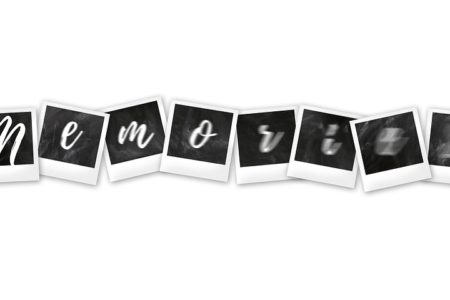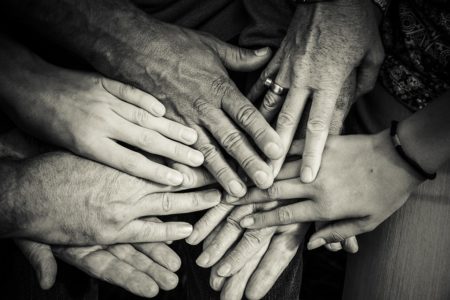Resources for mentally and emotionally challenging times
As we move away from the time of lockdowns associated with Covid-19, most folk are doing well in themselves, others are struggling, and others still feel like they are on an emotional and mental roller coaster. As the cost of living bites harder for folk, many are finding it hard to make decisions, be productive and connect with others in meaningful and kind ways. When our nervous systems are anxious and struggling in regular times, it can be especially hard during times of crisis. The following resources may provide some pastoral (not counselling) support for folk during difficult times – for themselves, or as they recognise the signs in others.
- Great resources available online and through Apps that support mental and emotional well-being:
- Head to Health – Australian Government Department of Health support for “Coping with unexpected events”.
- MindSpot – Online assessment and treatment for anxiety and depression – recognised by the Australian Government.
- Beyond Blue – with resources for Aboriginal and Torres Strait Islander communities.
- Smiling Mind – including Thrive Inside which offers specific support as we spend extended times at home; and Digital Care Packs to support kids through COVID-19 and beyond. Also available as an App.
- Headspace Australia – with specific links for COVID-19 support.
- Black Dog Institute – general mental health resources, including targeted support for COVID-19 – COVID-19: Resources for Anxiety & Stress and Working from home: a checklist to support your mental health.
- Bite Back – Black Dog Resources for Youth.
- Emerging Minds – including a variety of fantastic toolkits (with skills applicable for all!)
- Headspace – also available as an App.
- Calm – also available as an App.
- Taking some time to be still and quiet to slow down and listen to nature can work wonders. The following are some ideas that can be practiced at home, in front-yards, in back-yards, in other places (given lifting of restrictions). Some benefit can apparently be gained even by watching nature videos with these practices in mind if you can’t go out.
- Dadirri – an Aboriginal practice of inner deep listening. The linked explanations come from the Northern Territory. Where you have connections with local Aboriginal people and you can connect with them in these times, take the opportunity to ask them about their practice of inner deep listening.
- Forest bathing or forest therapy – a spiritual practice that originated in Japan. See how it looks in Melbourne/Victoria.
- Home gardeners world-wide are finding their garden helps keep them more balanced
- If you can’t get to the natural places you need, benefit can also be gained by:
- watching nature videos – you can find lots of these on YouTube from all over the world (there are even some where you can go for a virtual walk!)
- listening to ‘nature soundscapes’ – there are a number of Apps that can be downloaded (free, purchase, or subscription) that have been recorded with high quality sound from all over the world. Again, you can also find nature soundscapes on YouTube.
- If more noise is your thing’, there are soundscapes available on YouTube of cities too!
- For those who live alone, being separated from others can be very difficult and lonely. If you live alone, or know someone who does, these resources may help:
- Long, lonely lockdown: dealing with separation anxiety (Black Dog Institute)
- Coronavirus and living alone – this video has 6 great tips that are great ways to support those living alone, as many do all the time (Anglicare)
- Ambiguous loss, disenfranchised grief and COVID-19. Through the earlier stages of the COVID pandemic, many were feeling grief and loss that was unclear, full of uncertainty, not knowing what was coming next – at home, work, church, society, etc. For some, this was linked to anxiety because they do not know exactly why they were feeling loss, or whether it is ok to feel that way. Back in the 1970’s, Dr Pauline Boss developed the term, “ambiguous loss” in her work with people who had family members away at war. She then developed this work further with those who had a family member experiencing dementia. Dr Boss’ work on ambiguous loss has application to trauma and the time we faced due to COVID-19. Researchers in Australia have also been studying what has been termed, “disenfranchised grief”. Professor Jane Fisher and Senior Research Fellow Maggie Kirkman from Monash University are seeking to understand COVID-19’s impact on Australian adults, including the effects of disenfranchised grief. And, there are many other instances throughout life where people experience ambiguous loss and disenfranchised grief.
Some useful resources around ambiguous loss and disenfranchised grief are:- COVID-19 and its Ambiguous Losses: How to Cope with the Stress and Anxiety – a YouTube clip where Dr Boss speaks about COVID-19 and ambiguous loss (a great listen with some PPT slides).
- COVID-19 and Ambiguous Loss – a written explanation about ambiguous loss generally and how this relates to living in a pandemic.
- Grieving life and loss – from the American Psychological Association. This is more aimed at therapists but there are some important points in this too.
- Coronavirus: Recognising disenfranchised grief amid COVID-19 – from Monash University.
- Disenfranchised Grief – from Grief Australia.
- Grief support. Great resources are available from Grief Australia including their App. There are information pages, recorded webinars, support groups, and books on topics including the following:
- understanding grief
- grief and sleep
- grief and neurodiversity
- grief and animal loss
- grief and Voluntary Assisted Dying
- grief and men
The Mental Health First Aid Course offers great training for those who are looking for skills to support others in ways that are appropriate. Look out for training in your Presbytery or visit the Mental Health First Aid Course website here.




